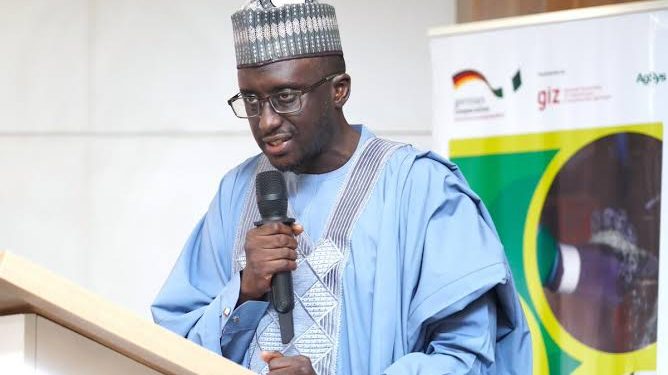The National Agricultural Development Fund (NADF) and the German Development Cooperation (GIZ) have pledged renewed efforts to revolutionize Nigeria’s agricultural sector through financing models that prioritize gender inclusion and climate resilience.
At a validation workshop in Abuja focused on climate-smart and gender-inclusive financing, both organisations reaffirmed their commitment to bridging financing gaps that have long excluded women and youth from accessing vital agricultural support. The workshop brought together stakeholders to refine a framework designed to deliver customized solutions that meet the needs of vulnerable farming populations.
The Nigerian Minister of Agriculture and Food Security said the initiative represents more than policy—it signals a tangible commitment to inclusivity and resilience in national food systems. He called for a shift beyond traditional finance models, highlighting the need to integrate digital tools, financial literacy, and innovative delivery mechanisms to reach underserved communities.
He stressed that achieving food security requires enabling farmers to withstand climate-related shocks, citing recent flood disasters as a warning. He advocated for embedding risk management and anticipatory planning into agricultural systems.
The Executive Secretary of NADF stated that the agency’s mission is to unlock and deliver financing that works for every Nigerian farmer, regardless of location or barriers. He said the current phase of the project builds on earlier work and focuses on refining the financing model and mapping out its implementation.
He challenged stakeholders to embrace bold ideas like bundling financing with insurance and mechanisation into one pay-as-you-plant service and delivering microloans to women through mobile wallets. He encouraged collective ownership and innovation to ensure the model’s success.
Nigeria’s Minister of Women Affairs added urgency to the need for inclusive financial systems. She highlighted the paradox of Nigerian women producing up to 80 percent of the country’s food while receiving only a fraction of agricultural credit and land. She called for dismantling systemic barriers to women’s full participation in agriculture.
A GIZ representative reaffirmed Germany’s longstanding partnership with Nigeria and urged stakeholders to adopt the framework’s recommendations. These include designing financial products targeted at underserved groups, expanding access to non-collateralised loans, improving institutional coordination, and promoting climate-resilient agriculture.
The Senate Committee Chairman on Agriculture Production and Rural Development underscored the importance of technology in securing Nigeria’s food future. Meanwhile, the Minister of Humanitarian Affairs and Poverty Reduction called for policies that prioritise displaced Nigerians, who now number over five million but often remain invisible in national planning.
The NADF-GIZ framework marks a shift from conventional agricultural credit schemes to a more holistic approach. It proposes bundling finance with services such as mechanisation, advisory support, digital platforms, and risk-sharing mechanisms—all tailored to empower smallholder farmers, particularly women and youth, in adapting to climate change and building sustainable livelihoods.










